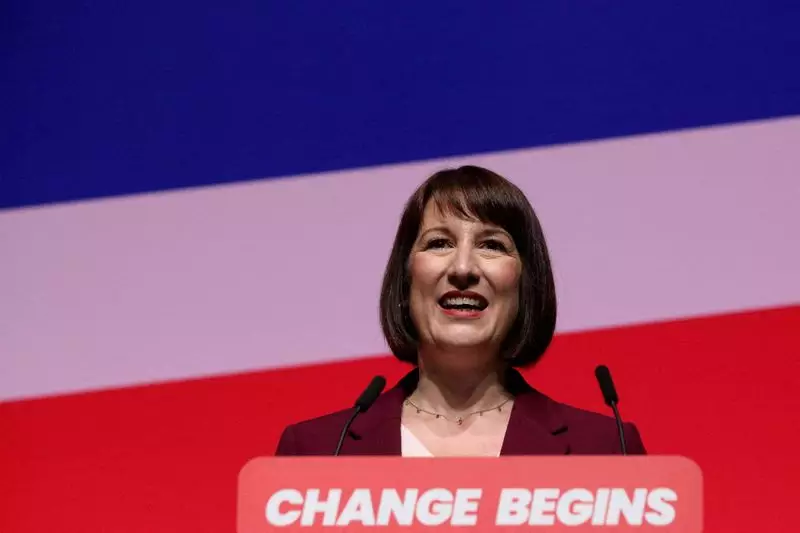As Rachel Reeves prepares to unveil her first budget as the British finance minister, the moment signals more than just a financial strategy; it is a transformative opportunity for the Labour Party. After a 14-year hiatus from power, the stakes could not be higher. The upcoming budget represents a test of the party’s vision for the UK economy amid a spectrum of challenges, including lingering inflationary pressures, geopolitical tensions, and a sluggish growth trajectory. As she gathers insights and support from international leaders during her discussions at the International Monetary Fund (IMF) and World Bank meetings in Washington, Reeves aims to set a tone of optimism for investors both at home and abroad.
In the wake of previous administrations’ fiscal policies, Reeves has the daunting task of addressing what is being reported as a significant budgetary shortfall. Her stated goal of raising around £40 billion ($52 billion) through a mixture of tax increases and targeted public spending cuts is more than mere logistics; it’s a calculated attempt to reinvigorate public services and invest in the UK’s economic foundations. The emphasis on balancing the budget while also nurturing growth reflects an acute awareness of the delicate equilibrium that must be maintained to stabilize Britain’s economic landscape.
Moreover, the proposed changes to Britain’s fiscal rules are particularly noteworthy. With a projected shift towards a more lenient definition of public debt—one that includes illiquid assets—the ability to borrow will be expanded. This move could potentially open doors for unprecedented public investment, paving the way for a more dynamic economy that also seeks to meet the United Nations’ sustainable development goals. The consequences of this could be far-reaching, impacting everything from infrastructure development to green energy initiatives.
At Washington’s international meetings, Reeves will not only discuss domestic fiscal policies but also elaborate on Britain’s role in the global community. The minister’s commitment to offering financial support to Ukraine exemplifies Britain’s willingness to take a stand regarding global conflicts while simultaneously reinforcing its financial stability through cooperative international investments. The loan package to Ukraine is not merely an act of goodwill; it reflects a strategic diplomatic effort to strengthen international alliances while responding assertively to threats posed by adversarial nations.
Additionally, her push for the G20 countries to adopt more transparent practices in managing their debts is indicative of the broader framework she aims to establish. Engaging with developed nations to consider responsibility in public financing can bolster collective action in tackling global issues, demonstrating the interconnectedness of financial policies in an increasingly globalized world.
The recent upgrade by the IMF for Britain’s economic growth forecast, although a positive sign, remains tempered by the reality of an anticipated growth rate of only 1.1% in 2024. Such figures signify the hurdles ahead in systemic reforms, urging Reeves to navigate a path that reconciles cautious optimism with strategic realism. A pronounced focus on public financial liabilities as opposed to solely net debt indicates a nuanced approach to fiscal strategy—one that acknowledges the complexities of economic health in contemporary Britain.
This perspective highlights the critical role of investment in stimulating growth and ensuring that public resources are utilized strategically. The balance between tightening budgets in some areas while allowing for leeway in others will determine how effectively Reeves can bolster services while fostering an environment primed for investment and growth.
As Rachel Reeves steps onto the international stage to reset Britain’s economic agenda, she embodies the hopes and aspirations of a nation seeking to reclaim its place in a turbulent world. By striking a balance between immediate financial needs and long-term growth prospects, she presents a vision that could reshape the economic landscape. The road ahead will undoubtedly be fraught with challenges, but the potential for revitalization and partnership could position the Labour Party—and the UK—at the forefront of a new era of economic transformation. Ultimately, Reeves’ approach represents a crucial step toward establishing an economic framework that prioritizes sustainability while fostering robust international relationships. The world will be watching closely as her plans unfold and as Britain aims to emerge stronger through strategic investments and renewed confidence.

